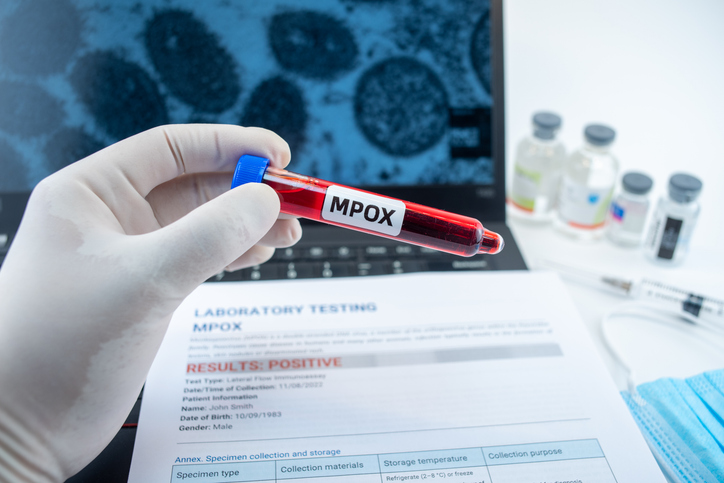Mpox Cases in Europe: Unreported Numbers and Rising Concerns
The CEO of Swiss pharmaceutical giant Roche, Thomas Schinecker, recently revealed that the number of mpox (formerly known as monkeypox) cases in Europe is likely far higher than official reports suggest. Roche, a leader in diagnostics, has the capacity to provide up to ten times the current number of mpox test kits, signaling that the company is prepared for a significant increase in demand should the virus continue to spread.
During a recent company earnings call, Schinecker pointed out that while some cases are making headlines, "it appears that there are indeed more mpox cases in Europe, and not all of them may have been covered by the media." The Robert Koch Institute, Germany's public health authority, has already confirmed a case of a new mpox variant and assessed the risk to the general public as low. However, the fact that this new variant has been identified raises concerns about the virus's potential spread and underscores the importance of accurate reporting and testing.
The History of Mpox: Where It All Began
Mpox was first identified in 1958 when outbreaks occurred in colonies of monkeys kept for research, hence the name. However, it wasn't until 1970 that the first human case was reported in the Democratic Republic of Congo (DRC). The virus is primarily found in Central and West Africa, where it is considered endemic. It spreads from animals to humans, and human-to-human transmission occurs through close contact, respiratory droplets, or contact with contaminated materials.
While the virus remained largely contained in Africa for decades, the recent spread to other regions, including Europe and the Americas, has prompted international concern. The World Health Organization (WHO) declared a global health emergency in August after the mpox variant emerged in the DRC and spread to neighboring countries. The first case of mpox outside of Africa was reported in Sweden on August 15, 2023, marking a turning point in the global spread of the virus.
What is Mpox? Symptoms, Transmission, and Impact
Mpox is a zoonotic viral disease that belongs to the same family as smallpox, though it is generally less severe. It typically begins with flu-like symptoms such as fever, muscle aches, and swollen lymph nodes. These initial symptoms are followed by a distinctive rash that starts on the face and spreads to other parts of the body, often forming painful, pus-filled lesions. The incubation period is usually between 6 and 13 days, but can extend up to 21 days.
The virus can be fatal, particularly in children or individuals with weakened immune systems. The case fatality rate for mpox ranges from 1% to 10%, depending on the strain and the region in which it occurs. However, with supportive medical care, most people recover within two to four weeks.
Transmission of mpox primarily occurs through direct contact with the bodily fluids, lesions, or respiratory droplets of an infected person. The virus can also spread through contaminated materials such as bedding or clothing. Human-to-human transmission is a concern, especially in close-knit communities or healthcare settings where the virus can easily pass from one individual to another.
Europe’s New Mpox Threat and Roche’s Preparedness
The recent appearance of a new mpox variant in Europe, particularly in Germany, is causing concern among health experts. Although the Robert Koch Institute has assessed the risk to the general public as low, the potential for widespread transmission remains. Roche's CEO emphasized that the company's diagnostic production capabilities could be ramped up to meet demand in the event of a large outbreak. Schinecker noted that Roche could supply ten times the current number of test kits, but it would take six to nine months to increase production if mpox spreads at a pandemic level.
While current demand for testing kits is low, Roche's ability to respond quickly to increased need shows the importance of preparedness in combating viral outbreaks. The company is closely monitoring the situation and remains ready to act should the new mpox variant cause a surge in infections across Europe.
The Global Response to Mpox
The spread of mpox beyond its traditional geographic boundaries has raised new challenges for global health authorities. With cases being underreported in Europe and a new variant circulating, there is an urgent need for increased vigilance, better testing, and faster response measures. Roche's readiness to scale up test production is a reassuring sign that the pharmaceutical industry is prepared to respond to potential health crises. However, public awareness, accurate reporting, and preventive measures will be crucial in controlling the spread of mpox and preventing a full-blown epidemic.









